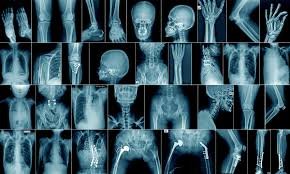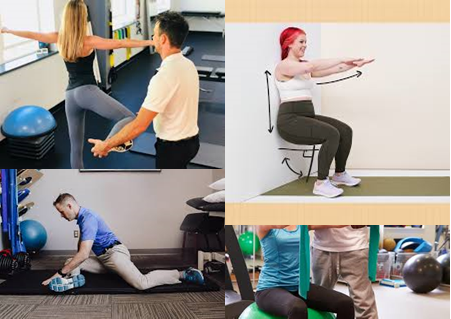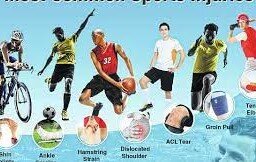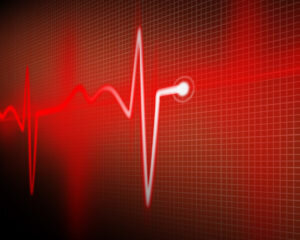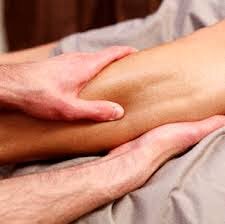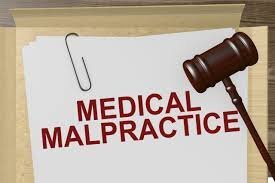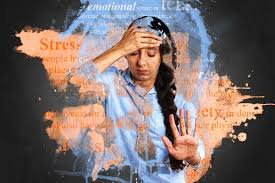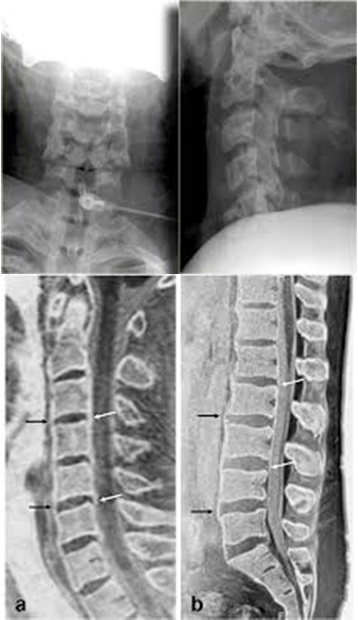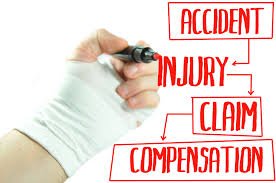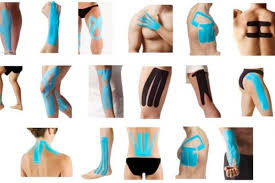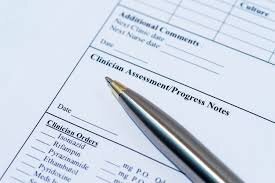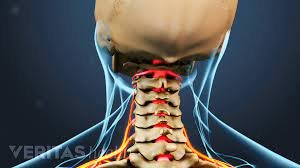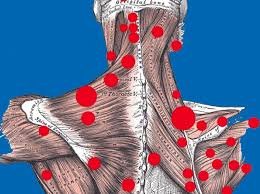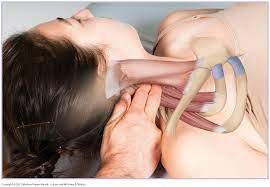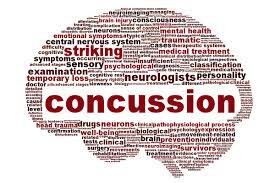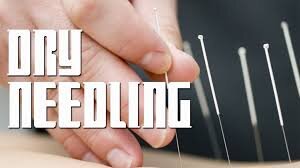Rehab Modalities & Exercises
Dr. Carter will present an optimal mix of education, evidence-based techniques, and hands-on training for rehabilitation in your practice.
Rehabilitation will start with assessment protocols and corrective exercises/protocols. No matter what your background training may be, you will definitely be able to apply something to your everyday practice to help patients.
The hands-on portion of this seminar will teach you specific rehab exercises and when to use them.
Treating the Athletic Patient On and Off the Field
Dr. Morgan will teach:
Overview of examination and treatment of common sports injuries
Proper assessment of injuries and functionality
The Chiropractor’s role in active sports injuries - what and when is it YOUR responsibility
Concussion protocols
Assessment Techniques Using Heart Rate & Skin Variables
This seminar teaches chiropractors the rationale, procedure, and interpretation of evidence-based in-office testing that will monitor ANS changes following your spinal care, comparing pre- and post-adjustment findings.
The testing covered in this seminar includes:
a. Skin temperature analysis (symmetry and pattern models). Instruments include simple single probe infrared thermometers as well as the elaborate TyTron thermographic system
b. Resting heart rate and heart rate variability. Technology includes App-based methods as well as a three-lead ECG unit.
c. Sit-to-stand heart rate test using App and radial artery palpation.
If you’re looking for objective, evidence-based assessments to monitor autonomic function in your practice, this seminar is for you!
Myofascial Disruption Technique & Workshop
Myofascial Disruption Technique is a hands on soft tissue method of treatment that is based on science and the understanding of how soft tissue breaks down, how to identify what is broken down, and exactly how to fix it. There are 7 specific soft tissue conditions that can be clearly identified and successfully treated with very straightforward principals.
This course will clearly demonstrate the principles that will tell you exactly what and how to treat the condition for a very rapid response. After reviewing the science, the very specific conditions are discussed and treatment is demonstrated on live patients.
Rehab Modalities & Exercises
Dr. Carter will present an optimal mix of education, evidence-based techniques, and hands-on training for rehabilitation in your practice.
Rehabilitation will start with assessment protocols and corrective exercises/protocols. No matter what your background training may be, you will definitely be able to apply something to your everyday practice to help patients.
The hands-on portion of this seminar will teach you specific rehab exercises and when to use them.
Rehab Modalities & Exercises
Dr. Carter will present an optimal mix of education, evidence-based techniques, and hands-on training for rehabilitation in your practice.
Rehabilitation will start with assessment protocols and corrective exercises/protocols. No matter what your background training may be, you will definitely be able to apply something to your everyday practice to help patients.
The hands-on portion of this seminar will teach you specific rehab exercises and when to use them.
Myofascial Disruption Technique & Workshop
Myofascial Disruption Technique is a hands on soft tissue method of treatment that is based on science and the understanding of how soft tissue breaks down, how to identify what is broken down, and exactly how to fix it. There are 7 specific soft tissue conditions that can be clearly identified and successfully treated with very straightforward principals.
This course will clearly demonstrate the principles that will tell you exactly what and how to treat the condition for a very rapid response. After reviewing the science, the very specific conditions are discussed and treatment is demonstrated on live patients.
Treating the Athletic Patient On and Off the Field
Dr. Morgan will teach:
Overview of examination and treatment of common sports injuries
Proper assessment of injuries and functionality
The Chiropractor’s role in active sports injuries - what and when is it YOUR responsibility
Concussion protocols
Avoiding Malpractice: The prevention of Medical Errors & Risk Management
Dr. Hayes will discuss 18 Office Procedures Protection Strategies and help you to develop Proper Office Procedures. He will review what is covered in malpractice insurance and how new laws pertain to you and your practice.
You will leave this seminar with forms and materials to use to keep your practice compliant and help protect yourself, your staff and your practice.
Musculoskeletal Imaging & Surprises: Case Reviews, MRI’s & Modalities
Dr. Steven Gould will give an in-depth program on imaging and modalities. Included will be information on MRI’s, Plain X-ray, Ultrasound and more. You will see case studies from Chiropractors, various imaging protocols and pathologies, Concussion and Brain injury imaging and learn to identify indications of disease that need to be referred as well as difficult to see issues that you can treat. Click to see what you will learn in this seminar
Assessment Techniques Using Heart Rate & Skin Variables
This seminar teaches chiropractors the rationale, procedure, and interpretation of evidence-based in-office testing that will monitor ANS changes following your spinal care, comparing pre- and post-adjustment findings.
The testing covered in this seminar includes:
a. Skin temperature analysis (symmetry and pattern models). Instruments include simple single probe infrared thermometers as well as the elaborate TyTron thermographic system
b. Resting heart rate and heart rate variability. Technology includes App-based methods as well as a three-lead ECG unit.
c. Sit-to-stand heart rate test using App and radial artery palpation.
If you’re looking for objective, evidence-based assessments to monitor autonomic function in your practice, this seminar is for you!
Treating the Athletic Patient On and Off the Field
Dr. Morgan will teach:
Overview of examination and treatment of common sports injuries
Proper assessment of injuries and functionality
The Chiropractor’s role in active sports injuries - what and when is it YOUR responsibility
Concussion protocols
The Impact of ACE's on Health Outcomes: Trauma Informed Care in Chiropractic
Trauma informed care (TIC) is a recommended approach to healthcare delivery across professions, especially when a trauma history is suspected. This program aims to introduce TIC concepts as they may apply to chiropractic care for adults with a history of Adverse Childhood Experiences (ACEs). Prior trauma can lessen trust, alter perceptions of physical touch, and hands-on examinations and chiropractic treatments may trigger stress responses.
ACEs can facilitate chronic stress. Chronic stress leads to an increase in stress hormones (adrenocorticoids), held in a dynamic equilibrium by allostasis . Chronic stress generates allostatic load, straining body systems and causing physiological change.
All of the effects of chiropractic care on this population are well documented throughout the literature and through studies. Join us to learn how Chiropractic can help these patients and how you as a Chiropractor can have a major impact on their ability to function.
Treating the Athletic Patient On and Off the Field
Dr. Morgan will teach:
Overview of examination and treatment of common sports injuries
Proper assessment of injuries and functionality
The Chiropractor’s role in active sports injuries - what and when is it YOUR responsibility
Concussion protocols
Lumbar & Cervical Imaging with Instabilities, Oddities & Surprises
Dr. Steven Gould will begin the day with Lumbar instabilities, spondylolysis and spondylolisthesis and herniations. He will continue with Cervical Trauma and Upper Cervical Oddities in imaging and end the day with surprises you may see in your practice. Click to see what you will learn in this seminar
Avoiding Malpractice: The prevention of Medical Errors & Risk Management
Dr. Hayes will discuss 18 Office Procedures Protection Strategies and help you to develop Proper Office Procedures. He will review what is covered in malpractice insurance and how new laws pertain to you and your practice.
You will leave this seminar with forms and materials to use to keep your practice compliant and help protect yourself, your staff and your practice.
The Impact of ACE's on Health Outcomes and Cervical Radiculopathy Treatments: Trauma Informed Care in Chiropractic
Trauma informed care (TIC) is a recommended approach to healthcare delivery across professions, especially when a trauma history is suspected. This program aims to introduce TIC concepts as they may apply to chiropractic care for adults with a history of Adverse Childhood Experiences (ACEs). Prior trauma can lessen trust, alter perceptions of physical touch, and hands-on examinations and chiropractic treatments may trigger stress responses.
ACEs can facilitate chronic stress. Chronic stress leads to an increase in stress hormones (adrenocorticoids), held in a dynamic equilibrium by allostasis . Chronic stress generates allostatic load, straining body systems and causing physiological change.
All of the effects of chiropractic care on this population are well documented throughout the literature and through studies. Join us to learn how Chiropractic can help these patients and how you as a Chiropractor can have a major impact on their ability to function.
Assessment Techniques Using Heart Rate & Skin Variables
This seminar teaches chiropractors the rationale, procedure, and interpretation of evidence-based in-office testing that will monitor ANS changes following your spinal care, comparing pre- and post-adjustment findings.
The testing covered in this seminar includes:
a. Skin temperature analysis (symmetry and pattern models). Instruments include simple single probe infrared thermometers as well as the elaborate TyTron thermographic system
b. Resting heart rate and heart rate variability. Technology includes App-based methods as well as a three-lead ECG unit.
c. Sit-to-stand heart rate test using App and radial artery palpation.
If you’re looking for objective, evidence-based assessments to monitor autonomic function in your practice, this seminar is for you!
Non-Surgical Spinal Decompression
Dr. Henry will show you how to perform spinal decompression, when and when not to use this method, and give you the treatment protocols you need to successfully treat these patients.
In this seminar, you will learn:
What is spinal decompression and the difference between this and traction
Indications & Contraindications for treatment
Treatment Protocols
What to treat and how to treat using spinal decompression
Multi-modal treatment approach
Comparisons to alternative treatments
Research & Studies
Risk Management involved
How to start using spinal decompression in your practice
Assessment Techniques Using Heart Rate & Skin Variables
This seminar teaches chiropractors the rationale, procedure, and interpretation of evidence-based in-office testing that will monitor ANS changes following your spinal care, comparing pre- and post-adjustment findings.
The testing covered in this seminar includes:
a. Skin temperature analysis (symmetry and pattern models). Instruments include simple single probe infrared thermometers as well as the elaborate TyTron thermographic system
b. Resting heart rate and heart rate variability. Technology includes App-based methods as well as a three-lead ECG unit.
c. Sit-to-stand heart rate test using App and radial artery palpation.
If you’re looking for objective, evidence-based assessments to monitor autonomic function in your practice, this seminar is for you!
Treating the Athletic Patient On and Off the Field
Dr. Morgan will teach:
Overview of examination and treatment of common sports injuries
Proper assessment of injuries and functionality
The Chiropractor’s role in active sports injuries - what and when is it YOUR responsibility
Concussion protocols
Assessment Techniques Using Heart Rate & Skin Variables
This seminar teaches chiropractors the rationale, procedure, and interpretation of evidence-based in-office testing that will monitor ANS changes following your spinal care, comparing pre- and post-adjustment findings.
The testing covered in this seminar includes:
a. Skin temperature analysis (symmetry and pattern models). Instruments include simple single probe infrared thermometers as well as the elaborate TyTron thermographic system
b. Resting heart rate and heart rate variability. Technology includes App-based methods as well as a three-lead ECG unit.
c. Sit-to-stand heart rate test using App and radial artery palpation.
If you’re looking for objective, evidence-based assessments to monitor autonomic function in your practice, this seminar is for you!
Rehab Modalities & Exercises
Dr. Carter will present an optimal mix of education, evidence-based techniques, and hands-on training for rehabilitation in your practice.
Rehabilitation will start with assessment protocols and corrective exercises/protocols. No matter what your background training may be, you will definitely be able to apply something to your everyday practice to help patients.
The hands-on portion of this seminar will teach you specific rehab exercises and when to use them.
The Impact of ACE's on Health Outcomes: Trauma Informed Care in Chiropractic
Trauma informed care (TIC) is a recommended approach to healthcare delivery across professions, especially when a trauma history is suspected. This program aims to introduce TIC concepts as they may apply to chiropractic care for adults with a history of Adverse Childhood Experiences (ACEs). Prior trauma can lessen trust, alter perceptions of physical touch, and hands-on examinations and chiropractic treatments may trigger stress responses.
ACEs can facilitate chronic stress. Chronic stress leads to an increase in stress hormones (adrenocorticoids), held in a dynamic equilibrium by allostasis . Chronic stress generates allostatic load, straining body systems and causing physiological change.
All of the effects of chiropractic care on this population are well documented throughout the literature and through studies. Join us to learn how Chiropractic can help these patients and how you as a Chiropractor can have a major impact on their ability to function.
Lumbar & Cervical Imaging with Instabilities, Oddities & Surprises
Dr. Steven Gould will begin the day with Lumbar instabilities, spondylolysis and spondylolisthesis and herniations. He will continue with Cervical Trauma and Upper Cervical Oddities in imaging and end the day with surprises you may see in your practice. Click to see what you will learn in this seminar
Non-Surgical Spinal Decompression
Dr. Henry will show you how to perform spinal decompression, when and when not to use this method, and give you the treatment protocols you need to successfully treat these patients.
In this seminar, you will learn:
What is spinal decompression and the difference between this and traction
Indications & Contraindications for treatment
Treatment Protocols
What to treat and how to treat using spinal decompression
Multi-modal treatment approach
Comparisons to alternative treatments
Research & Studies
Risk Management involved
How to start using spinal decompression in your practice
The Science of Whiplash & Other Personal Injuries: The Good, the Bad & the Ugly!
An in depth look at Personal Injury. What makes a good personal injury case, and cases you should avoid. The key ingredients that determine an appropriate case and injury. How a doctor can ensure that the doctor and the patient do not make mistakes in a PI case that is detrimental to the patient or the practice. How to tell when there really is an injury and when the evidence does not support a case.
A highlight of this class is seeing a real mock trial that resulted in a significant defense verdict. You will see how a real defense attorney set up the questioning and how there was nothing that could be done by the plaintiff attorney, all because of common mistakes the doctor made. This happens frequently in cases and can all be avoided. However, it is very easy to avoid these problems and usually will result in a case not going to trial. But if you must go to trial, you will be prepared.
Treating the Athletic Patient On and Off the Field
Dr. Morgan will teach:
Overview of examination and treatment of common sports injuries
Proper assessment of injuries and functionality
The Chiropractor’s role in active sports injuries - what and when is it YOUR responsibility
Concussion protocols
Taping Techniques & Sports Chiropractic
In this seminar Dr. Morgan will teach:
Athletic and Kinesio taping methods for all major areas of the body
Overview of examination and treatment of common injuries
Working as a team or event chiropractor in various circumstances. How to get involved. Patient/athlete forms, informed consent and risk management.
Sports Chiropractic clinical pearls and tips
Case Studies in Sports Chiropractic
Concussion protocols
Non-Surgical Spinal Decompression
Dr. Henry will show you how to perform spinal decompression, when and when not to use this method, and give you the treatment protocols you need to successfully treat these patients.
In this seminar, you will learn:
What is spinal decompression and the difference between this and traction
Indications & Contraindications for treatment
Treatment Protocols
What to treat and how to treat using spinal decompression
Multi-modal treatment approach
Comparisons to alternative treatments
Research & Studies
Risk Management involved
How to start using spinal decompression in your practice
Taping Techniques & Sports Chiropractic
In this seminar Dr. Morgan will teach:
Athletic and Kinesio taping methods for all major areas of the body
Overview of examination and treatment of common injuries
Working as a team or event chiropractor in various circumstances. How to get involved. Patient/athlete forms, informed consent and risk management.
Sports Chiropractic clinical pearls and tips
Case Studies in Sports Chiropractic
Concussion protocols
Assessment Techniques Using Heart Rate & Skin Variables
This seminar teaches chiropractors the rationale, procedure, and interpretation of evidence-based in-office testing that will monitor ANS changes following your spinal care, comparing pre- and post-adjustment findings.
The testing covered in this seminar includes:
a. Skin temperature analysis (symmetry and pattern models). Instruments include simple single probe infrared thermometers as well as the elaborate TyTron thermographic system
b. Resting heart rate and heart rate variability. Technology includes App-based methods as well as a three-lead ECG unit.
c. Sit-to-stand heart rate test using App and radial artery palpation.
If you’re looking for objective, evidence-based assessments to monitor autonomic function in your practice, this seminar is for you!
Myofascial Disruption Technique & Workshop
Myofascial Disruption Technique is a hands on soft tissue method of treatment that is based on science and the understanding of how soft tissue breaks down, how to identify what is broken down, and exactly how to fix it. There are 7 specific soft tissue conditions that can be clearly identified and successfully treated with very straightforward principals.
This course will clearly demonstrate the principles that will tell you exactly what and how to treat the condition for a very rapid response. After reviewing the science, the very specific conditions are discussed and treatment is demonstrated on live patients.
Assessment Techniques Using Heart Rate & Skin Variables
This seminar teaches chiropractors the rationale, procedure, and interpretation of evidence-based in-office testing that will monitor ANS changes following your spinal care, comparing pre- and post-adjustment findings.
The testing covered in this seminar includes:
a. Skin temperature analysis (symmetry and pattern models). Instruments include simple single probe infrared thermometers as well as the elaborate TyTron thermographic system
b. Resting heart rate and heart rate variability. Technology includes App-based methods as well as a three-lead ECG unit.
c. Sit-to-stand heart rate test using App and radial artery palpation.
If you’re looking for objective, evidence-based assessments to monitor autonomic function in your practice, this seminar is for you!
Outcome Assessment Tools: Acute vs. Chronic vs. Maintenance/Wellness
"Chiropractic: It Works."
That was enough for a long time, but Chiropractic practice today demands more. Regardless of your practice style or philosophy, outcome assessments are the universal language of health care.
Outcome assessments are the gold standard of justification for treatment; whether that be at an elevated interval due to acute pain or dysfunction or at a reduced interval with minimal pain but persistent dysfunction.
Outcome assessments bridge that gap and justify care within the very diverse chiropractic community, reviewers, payors, insurance companies, judges and juries. Being well versed and able to utilize them is essential for patient care in the 21st century.
Dr. Darrach will review the different types of assessment tools beside Oswestry and NDI: what they mean and how to incorporate them into your everyday practice. Acute vs Chronic vs Maintenance/Wellness. Confusing these can put chiropractors at risk during post payment audits. Learn how to transition between each.
Non-Surgical Spinal Decompression
Dr. Henry will show you how to perform spinal decompression, when and when not to use this method, and give you the treatment protocols you need to successfully treat these patients.
In this seminar, you will learn:
What is spinal decompression and the difference between this and traction
Indications & Contraindications for treatment
Treatment Protocols
What to treat and how to treat using spinal decompression
Multi-modal treatment approach
Comparisons to alternative treatments
Research & Studies
Risk Management involved
How to start using spinal decompression in your practice
Taping Techniques & Sports Chiropractic
In this seminar Dr. Morgan will teach:
Athletic and Kinesio taping methods for all major areas of the body
Overview of examination and treatment of common injuries
Working as a team or event chiropractor in various circumstances. How to get involved. Patient/athlete forms, informed consent and risk management.
Sports Chiropractic clinical pearls and tips
Case Studies in Sports Chiropractic
Concussion protocols
Assessment Techniques Using Heart Rate & Skin Variables
This seminar teaches chiropractors the rationale, procedure, and interpretation of evidence-based in-office testing that will monitor ANS changes following your spinal care, comparing pre- and post-adjustment findings.
The testing covered in this seminar includes:
a. Skin temperature analysis (symmetry and pattern models). Instruments include simple single probe infrared thermometers as well as the elaborate TyTron thermographic system
b. Resting heart rate and heart rate variability. Technology includes App-based methods as well as a three-lead ECG unit.
c. Sit-to-stand heart rate test using App and radial artery palpation.
If you’re looking for objective, evidence-based assessments to monitor autonomic function in your practice, this seminar is for you!
Taping Techniques & Sports Chiropractic
In this seminar Dr. Morgan will teach:
Athletic and Kinesio taping methods for all major areas of the body
Overview of examination and treatment of common injuries
Working as a team or event chiropractor in various circumstances. How to get involved. Patient/athlete forms, informed consent and risk management.
Sports Chiropractic clinical pearls and tips
Case Studies in Sports Chiropractic
Concussion protocols
Taping Techniques & Sports Chiropractic
In this seminar Dr. Morgan will teach:
Athletic and Kinesio taping methods for all major areas of the body
Overview of examination and treatment of common injuries
Working as a team or event chiropractor in various circumstances. How to get involved. Patient/athlete forms, informed consent and risk management.
Sports Chiropractic clinical pearls and tips
Case Studies in Sports Chiropractic
Concussion protocols
Taping Techniques & Sports Chiropractic
In this seminar Dr. Morgan will teach:
Athletic and Kinesio taping methods for all major areas of the body
Overview of examination and treatment of common injuries
Working as a team or event chiropractor in various circumstances. How to get involved. Patient/athlete forms, informed consent and risk management.
Sports Chiropractic clinical pearls and tips
Case Studies in Sports Chiropractic
Concussion protocols
Assessment Techniques Using Heart Rate & Skin Variables
This seminar teaches chiropractors the rationale, procedure, and interpretation of evidence-based in-office testing that will monitor ANS changes following your spinal care, comparing pre- and post-adjustment findings.
The testing covered in this seminar includes:
a. Skin temperature analysis (symmetry and pattern models). Instruments include simple single probe infrared thermometers as well as the elaborate TyTron thermographic system
b. Resting heart rate and heart rate variability. Technology includes App-based methods as well as a three-lead ECG unit.
c. Sit-to-stand heart rate test using App and radial artery palpation.
If you’re looking for objective, evidence-based assessments to monitor autonomic function in your practice, this seminar is for you!
The Science of Whiplash & Other Personal Injuries: The Good, the Bad & the Ugly!
An in depth look at Personal Injury. What makes a good personal injury case, and cases you should avoid. The key ingredients that determine an appropriate case and injury. How a doctor can ensure that the doctor and the patient do not make mistakes in a PI case that is detrimental to the patient or the practice. How to tell when there really is an injury and when the evidence does not support a case.
A highlight of this class is seeing a real mock trial that resulted in a significant defense verdict. You will see how a real defense attorney set up the questioning and how there was nothing that could be done by the plaintiff attorney, all because of common mistakes the doctor made. This happens frequently in cases and can all be avoided. However, it is very easy to avoid these problems and usually will result in a case not going to trial. But if you must go to trial, you will be prepared.
Maximizing Performance and Productivity: The Importance of Workplace Ergonomics
Improving ergonomics in chiropractic practice can enhance performance and decrease fatigue. Learn about ergonomics in the workplace, including industry-specific terminology, hazards, and stressors. Discover how to reduce ergonomic stressors using tools and techniques.
Myofascial Disruption Technique & Workshop
Myofascial Disruption Technique is a hands on soft tissue method of treatment that is based on science and the understanding of how soft tissue breaks down, how to identify what is broken down, and exactly how to fix it. There are 7 specific soft tissue conditions that can be clearly identified and successfully treated with very straightforward principals.
This course will clearly demonstrate the principles that will tell you exactly what and how to treat the condition for a very rapid response. After reviewing the science, the very specific conditions are discussed and treatment is demonstrated on live patients.
Assessment Techniques Using Heart Rate & Skin Variables
This seminar teaches chiropractors the rationale, procedure, and interpretation of evidence-based in-office testing that will monitor ANS changes following your spinal care, comparing pre- and post-adjustment findings.
The testing covered in this seminar includes:
a. Skin temperature analysis (symmetry and pattern models). Instruments include simple single probe infrared thermometers as well as the elaborate TyTron thermographic system
b. Resting heart rate and heart rate variability. Technology includes App-based methods as well as a three-lead ECG unit.
c. Sit-to-stand heart rate test using App and radial artery palpation.
If you’re looking for objective, evidence-based assessments to monitor autonomic function in your practice, this seminar is for you!
Taping Techniques & Sports Chiropractic
In this seminar Dr. Morgan will teach:
Athletic and Kinesio taping methods for all major areas of the body
Overview of examination and treatment of common injuries
Working as a team or event chiropractor in various circumstances. How to get involved. Patient/athlete forms, informed consent and risk management.
Sports Chiropractic clinical pearls and tips
Case Studies in Sports Chiropractic
Concussion protocols
Challenges in Treating & Managing Cervical Radiculopathies and Outcome Assessment Tools
Millions of people suffer from symptoms such as neck and back pain, cervicogenic headaches, and migraines that can be effectively addressed by a Chiropractor. Evaluation techniques and a detailed diagnostic & treatment system can identify the pathology and treatment that has demonstrated streamlined decision making and better results.
Learn the examination and treatment of the cervical and upper thoracic spine using a full system, which is clinically proven to elicit better functional outcomes.
Non-Surgical Spinal Decompression
Dr. Henry will show you how to perform spinal decompression, when and when not to use this method, and give you the treatment protocols you need to successfully treat these patients.
In this seminar, you will learn:
What is spinal decompression and the difference between this and traction
Indications & Contraindications for treatment
Treatment Protocols
What to treat and how to treat using spinal decompression
Multi-modal treatment approach
Comparisons to alternative treatments
Research & Studies
Risk Management involved
How to start using spinal decompression in your practice
Non-Surgical Spinal Decompression
Dr. Henry will show you how to perform spinal decompression, when and when not to use this method, and give you the treatment protocols you need to successfully treat these patients.
In this seminar, you will learn:
What is spinal decompression and the difference between this and traction
Indications & Contraindications for treatment
Treatment Protocols
What to treat and how to treat using spinal decompression
Multi-modal treatment approach
Comparisons to alternative treatments
Research & Studies
Risk Management involved
How to start using spinal decompression in your practice
Maximizing Performance and Productivity: The Importance of Workplace Ergonomics
Improving ergonomics in chiropractic practice can enhance performance and decrease fatigue. Learn about ergonomics in the workplace, including industry-specific terminology, hazards, and stressors. Discover how to reduce ergonomic stressors using tools and techniques.
Learn Major Trigger Points
In this 2 hour seminar, you will learn the major trigger points and what and how they affect movement and function. Trigger points are discrete, focal, hyperirritable spots located in a taut band of skeletal muscle. They produce pain locally and in a referred pattern and often accompany chronic musculoskeletal disorders.
Post Isometric Relaxation (PIR)
Join us to learn the muscle energy technique, Post Isometric Relaxation (PIR) technique.
This technique utilizes an isometric contractual phase followed by gentle stretching of the same muscle and is commonly used for treating muscle tension and joint dysfunction in myofascial pain syndromes.
Muscle Testing
Muscle testing is a procedure performed by health practitioners as part of a physical evaluation. It helps assess the body’s muscles and their connections to the brain through the nervous system.
As an important part of a comprehensive physical evaluation, muscle testing can help discover the cause of a particular injury or disability. It can also quickly assist in measuring the effectiveness of specific treatments
Concussion Protocols
In this seminar Dr. Morgan will teach:
Overview of examination for concussions
Proper assessment of injuries and functionality
What to do when you suspect a concussion
Treatments for concussions
What you should NOT do when a concussion is suspected
The Chiropractor’s role when a concussion is suspected - what and when is it YOUR responsibility
The Science of Whiplash & Other Personal Injuries: The Good, the Bad & the Ugly!
An in depth look at Personal Injury. What makes a good personal injury case, and cases you should avoid. The key ingredients that determine an appropriate case and injury. How a doctor can ensure that the doctor and the patient do not make mistakes in a PI case that is detrimental to the patient or the practice. How to tell when there really is an injury and when the evidence does not support a case.
A highlight of this class is seeing a real mock trial that resulted in a significant defense verdict. You will see how a real defense attorney set up the questioning and how there was nothing that could be done by the plaintiff attorney, all because of common mistakes the doctor made. This happens frequently in cases and can all be avoided. However, it is very easy to avoid these problems and usually will result in a case not going to trial. But if you must go to trial, you will be prepared.
Assessment Techniques Using Heart Rate & Skin Variables
This seminar teaches chiropractors the rationale, procedure, and interpretation of evidence-based in-office testing that will monitor ANS changes following your spinal care, comparing pre- and post-adjustment findings.
The testing covered in this seminar includes:
a. Skin temperature analysis (symmetry and pattern models). Instruments include simple single probe infrared thermometers as well as the elaborate TyTron thermographic system
b. Resting heart rate and heart rate variability. Technology includes App-based methods as well as a three-lead ECG unit.
c. Sit-to-stand heart rate test using App and radial artery palpation.
If you’re looking for objective, evidence-based assessments to monitor autonomic function in your practice, this seminar is for you!
Taping Techniques & Sports Chiropractic
In this seminar Dr. Morgan will teach:
Athletic and Kinesio taping methods for all major areas of the body
Overview of examination and treatment of common injuries
Working as a team or event chiropractor in various circumstances. How to get involved. Patient/athlete forms, informed consent and risk management.
Sports Chiropractic clinical pearls and tips
Case Studies in Sports Chiropractic
Concussion protocols
Pain Management & Mobility - Innovative Chiropractic Solutions
Dr. Hayes will take you through the current pain methods of MDs and DOs and the impact they really have on patients. You will learn the current research and theories on pain management and some very innovative things you can do as chiropractors to control pain.
You will come out of this class with a better understanding of and more ways to alleviate and control the pain your patients are experiencing, and some of the major conditions that your patients have that can be treated successfully in your practice.
Taping Techniques & Sports Chiropractic
In this seminar Dr. Morgan will teach:
Athletic and Kinesio taping methods for all major areas of the body
Overview of examination and treatment of common injuries
Working as a team or event chiropractor in various circumstances. How to get involved. Patient/athlete forms, informed consent and risk management.
Sports Chiropractic clinical pearls and tips
Case Studies in Sports Chiropractic
Concussion protocols
Dry Needling Application & Techniques - 12 Hour Practical Course
Dry Needling Applications & Protocols
12 Hour Practical Course
Beginner through Advanced material for Dry Needling. You’ll get extensive instruction, and practice on individual areas and how to properly insert the needles to get positive results with your patients.
You will be taught how to perform dry needling on each part of the body, how to insert the needles, where to insert the needles, how long to leave them in and much more. You will know confidently how to perform this technique to your patients when you are finished!
Dr. Hayes teaches and demonstrates Dry Needling - when and how to use it to better treat your patients.
This hands on course will prepare you to safely and successfully incorporate this technique into your practice. You will have the chance to practice this technique throughout the seminar so you are confident in your ability to perform dry needling when you leave the seminar!
You will get a supply of needles and necessities to take back to your office with you!
Dry Needling Application & Techniques - 12 Hour Practical Course
Dry Needling Applications & Protocols
12 Hour Practical Course
Beginner through Advanced material for Dry Needling. You’ll get extensive instruction, and practice on individual areas and how to properly insert the needles to get positive results with your patients.
You will be taught how to perform dry needling on each part of the body, how to insert the needles, where to insert the needles, how long to leave them in and much more. You will know confidently how to perform this technique to your patients when you are finished!


